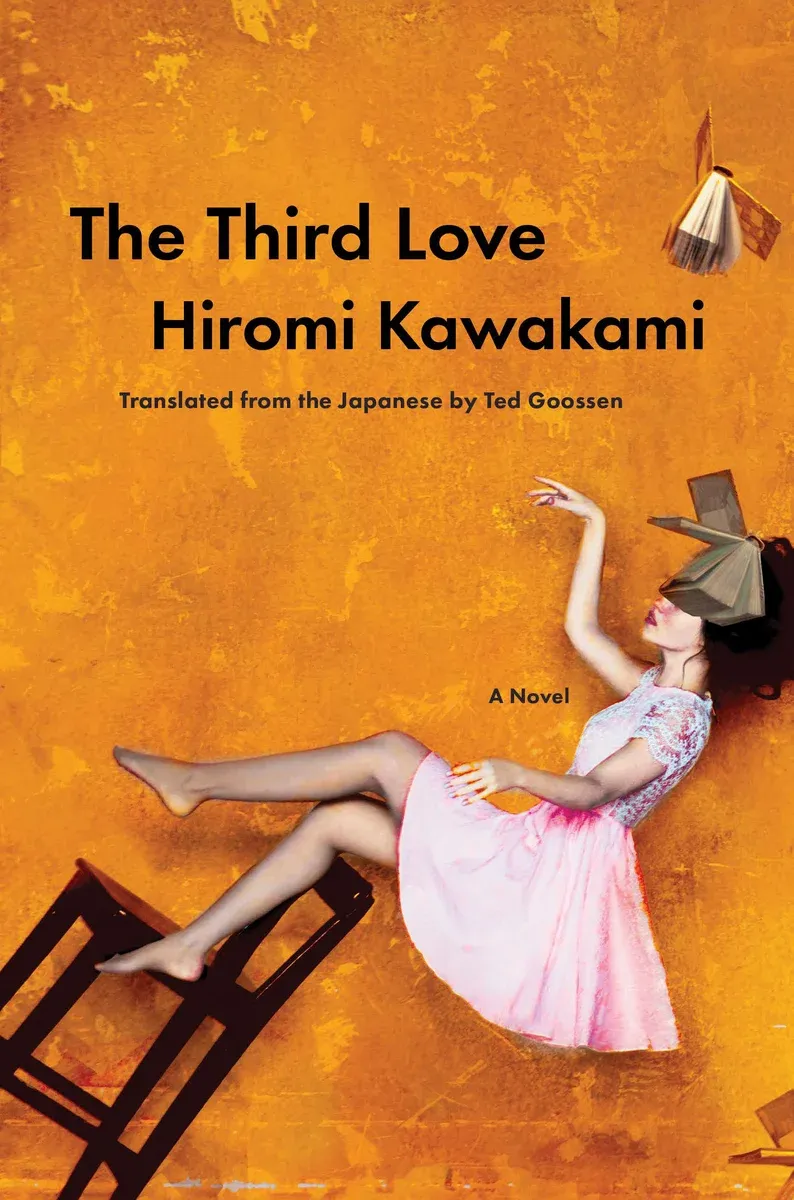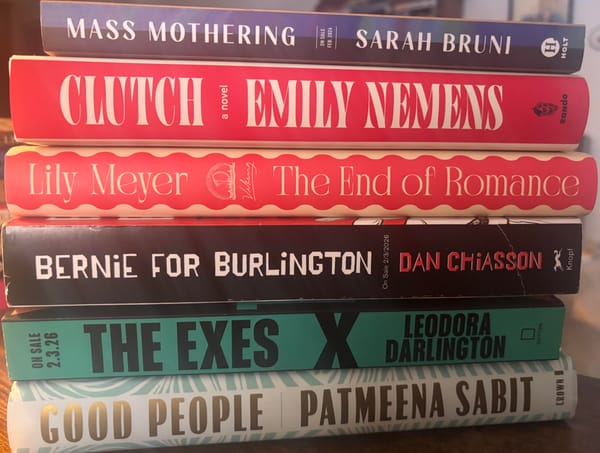The Maris Review, vol 81

It's Misandry Week at the Maris Review!
What I read this week

Without Consent: A Landmark Trial and the Decades-Long Struggle to Make Spousal Rape a Crime by Sarah Weinman
Spousal rape is just like any other form of rape (not uncommon, underreported, still very much about victim-blaming, etc) but I didn't realize that it wasn't until 1993 when spousal rape was considered a crime in all 50 states. Up until then it was assumed that husbands had indefinite consent, as if she was asking for it and kept asking for it the moment she said "I do."
Sarah Weinman's excellent new book focuses on one trial involving a young married couple barely in their twenties, and the aftermath of a rape that took place in Oregon right before I was born. Greta Rideout her husband John The trial would make national news and would prove to be excruciating for both parties.
I was struck by what prosecutor Gary Gortmaker, told the jury in his closing argument, about how he'd seen his share of these cases before: "Usually they end in two ways – homicide or suicide." Later Sarah takes us in the 1990s when Lorena Bobbitt, who used to show up covered in bruises to the nail salon where she was employed, presented a third option and became a national joke.
Spoiler alert: John Rideout was acquitted of the crime in the 1970s. Definition of spousal rape, looking at a specific occasion rather than being able to take context into account. If a jury is told to decide on one individual act they're not able to detect any patterns.
Much like in her previous books that detail center the victims of true crimes, Sarah presents the evidence with just enough commentary (very little). The facts, presented in pointed details, speak for themselves. And they are mindbogglingly infuriating.
Later in the book Sarah goes on to detail other big spousal rape cases and the activism it took to convince the country that even wives should have bodily autonomy. She also details how John Rideout himself was back in court in 2017 after two separate women to whom he wasn't married accused him of rape. Chilling. Without Consent pairs very well with Pagan Kennedy's history of the rape kit, which takes place in roughly the same time period. Both books describe things that feel absolutely archaic, but that in fact took place not so long ago.

The Third Love by Hiromi Kawakami, translated by Ted Goossen
What a strange novel to have read this week. I knew that the Japanese author Hiromi Kawakami had written previous books that involved age gap relationships, but I still wasn't expecting this novel to open with the narrator, Riko, at 2 years old, falling for Naa-Chan, the junior high boy who would eventually become her husband. Later, when irresistible Naa-Chan begins to cheat on Riko, she finds agency in lifelike, extended dreams in which she lives in other times. First she is a 17th century courtesan who falls in love with one of her clients. Then she is a handmaiden to a princess more than 1000 years ago, a princess who is married off at 15 years old. I tried not to ponder the ages of all of these characters too much, but I have to admit, while we're in the middle of discourse around whether "underaged woman" is an acceptable way to describe a child, I was unsettled.
I know I'm missing a lot of context here. There is so much Japanese literature and history of which I'm ignorant.The Third Love is based very heavily on The Tale of Genji and Tales of Ise, neither of which I've read. But still, I found so much to enjoy in the novel. What I immediately connected with is how wonderful it is to escape from day to day life into other people's stories. Isn't that the magic of reading? By placing herself within the broader contexts of history, Riko discovers new ways to live. Obsessive love becomes less consuming. "Jealousy today is a bit different from jealousy in a society where extramarital affairs were standard, not tabooed."
What a good reminder: the way we live now is not how it always was, and there is value in looking towards the past when we consider our priorities. Even if that past was so often riddled with cruelty and inequity and misogyny. The Third Love explores the ways identities can shift with various forms of knowledge, and if we're lucky we'll end up more worldly and stronger for it.
new releases, 11/18

Empire of Orgasm: Sex, Power, and the Downfall of a Wellness Cult by Ellen Huet
On the Calculation of Volume (Book III) by Solvej Balle, translated by Sophia Hersi Smith and Jennifer Russell
The Pelican Child: Stories by Joy Williams
Fear Less: Poetry in Perilous Times by Tracy K. Smith
Joan Crawford: A Woman's Face by Scott Eyman
Bigger Than Fashion: How Streetwear Conquered Culture by Tyler Watamanuk
Blank Space: A Cultural History of the 21st Century by W. David Marx





